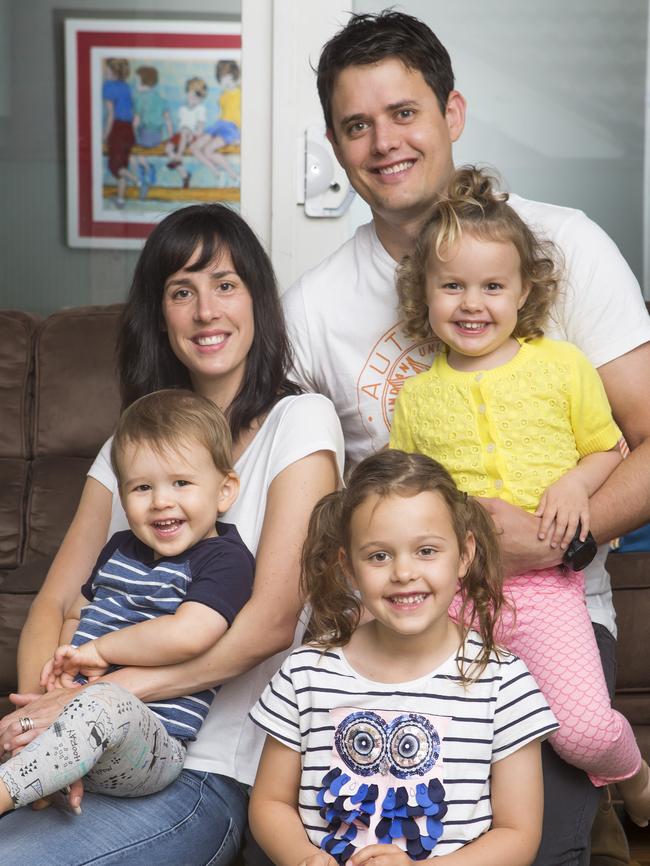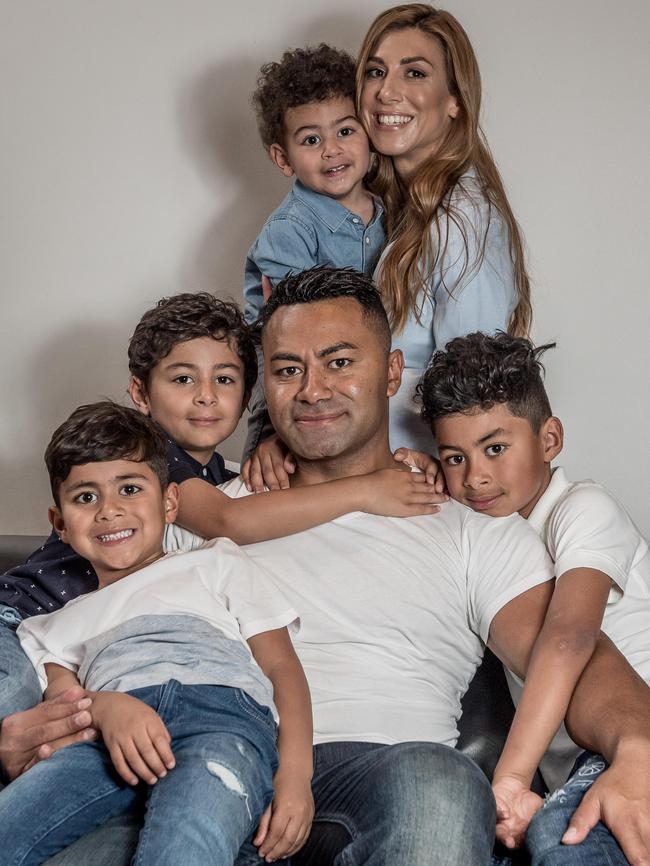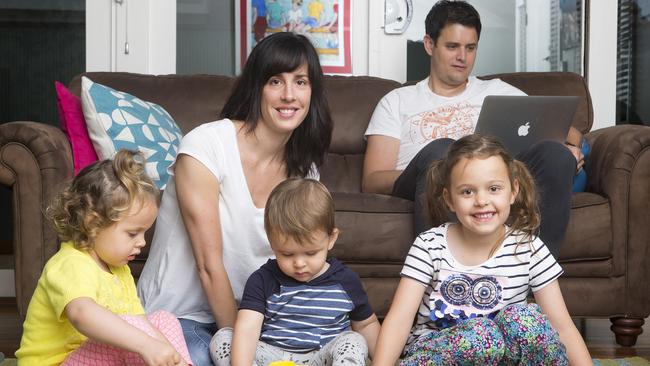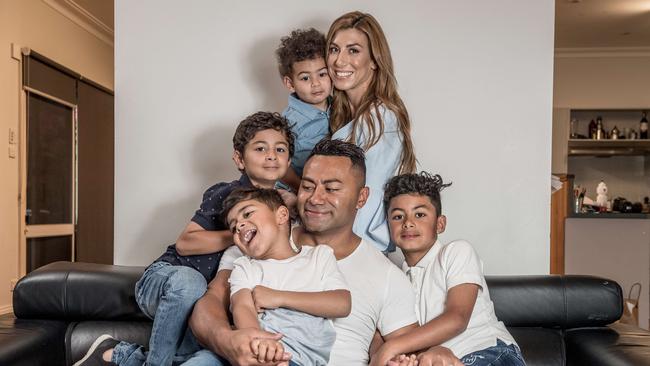Parenting tips: study finds mums and dads have different styles
A GROUNDBREAKING Victorian study has revealed the truth about mums and dads — who plays good cop or bad cop and the stress these roles can bring to families.

VIC News
Don't miss out on the headlines from VIC News. Followed categories will be added to My News.
DADS spend less time than mums arguing and yelling at their children, but they also spend less time talking with them about their day.
A groundbreaking Victorian study of 2600 parents has revealed differences in the way mums and dads parent their kids.
The study, by the Parenting Research Centre, shows dads are less satisfied with the time they spend with their kids and wish they were more consistent in their parenting.
Overall, the study found a third of parents smack their kids, one in 10 yells at their kids a lot, and 40 per cent say they are too impatient.
Other issues of importance to parents include sleep problems, a lack of time to play with their kids — both inside and outside — and the time their children spend on electronics.
■ Things Dads do: Give kids more freedom, wish they had more time with their kids, want to be more consistent, yell at their kids less, spend less time than mothers talking about serious issues with their kids
■ Things Mums do: feel more confident, feel more able to talk to teachers, more likely to go to first-time parents’ groups, have more people to turn to, fell more anxious and depressed

The study, funded by the state government, revealed other key differences between mums and dads.
Fathers say they spend less time than mothers talking to their children about problems or issues, such as friendships, schoolwork or drug use. They are also less likely to chat to them about what they did at school.
Despite this, nine out of 10 parents say they talk to their children daily about their school day.
Parenting Research Centre chief executive Warren Cann said the quality of everyday interactions between parents and children were very important.
“Mothers, who often get to spend more time with their children, have the advantage of more interaction,” he said.
“Interestingly, mothers see themselves as yelling more than fathers, but this might be because they are carrying out the lion’s share of the parenting tasks. This can mean greater wear and tear on mothers, which can take its toll.”

Dads also give their kids more freedom, with 84 per cent of mums setting rules about children’s free time, compared to 73 per cent of dads.
Mothers feel they are more effective parents than fathers, and are more confident when talking to teachers and making decisions with them about their children’s education. Despite this, there were no differences between mums and dads in feeling valued, judged, blamed or criticised by their child’s educators.
The report also found fathers felt they more often agreed with their partners on parenting matters.
Mothers felt they disagreed more often with their partners.
Fathers also felt they played a more equal role in parenting, but mothers were less inclined to agree.
Mr Cann said the study showed “greater levels of contentment in couples among men rather than women”.
“It’s important that disagreements and discontentment among parents isn’t left to fester, because this can erode the relationship,” he said.
“It’s much better for parents to talk about what they are not satisfied about, otherwise it can become a ticking time bomb.”
The report also showed mothers were more likely to report having depression or anxiety symptoms since becoming a parent.
DIFFERENT BUT SAME OUTCOME
Meg Hill
ASCOT Vale mother of three Kate Thomas, 34, says she and husband James “are a little bit like chalk and cheese when it comes to parenting”.
“He is much more relaxed and goes with the flow, and I am much more organised and highly strung,” she said.

Since having their first child six years ago, Ms Thomas has been a stay-at-home mum.
She has recently begun working part-time from home, while Mr Thomas works full-time.
She said this sometimes had a negative effect on how the load was shared.
“I often have felt that I do everything when it comes to the kids and the house, but I know that’s not true,” she said.
Despite their differences, Ms Thomas, an editor at Mama Mag, said she and James tended to agree on the things that mattered.
“I think we agree on what we should expect from the children, like manners and being kind and helpful,” she said.
“I think responsibilities are shared well between us. We could always mix it up a bit, but generally I think we make it work as a team.
“They are happy, healthy, vibrant kids, so that’s all we can really ask for.”
MAKING MOST OF HOME TIME
Susie O’Brien
WORKING full-time at the AFL keeps Essendon dad David Rodan busy, but he always makes the most of the time he has with his four young boys.
“I like to get back quickly from work so I can spend time with them before they go to bed,” Mr Rodan, 34, said.

“I also spend time with them in the mornings, and I’ll make them breakfast and do the lunches, and take them to school.
“I like to connect with the boys on their terms, and that can mean lots
of chatting about Batman versus Superman while we’re doing Lego.
“That’s the best way to get them to open up about what they did at school.”
Mr Rodan’s wife Carla is a stay-at-home mum, meaning she spent a lot more time with the boys, he said.
“She has a teaching background and that really informs her approach, which is based on talking to them about what’s expected,” he said.
“If they need to be disciplined, she has usually spoken to them already by the time I am home.
“It means I can reinforce the message.”



